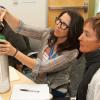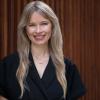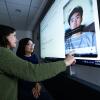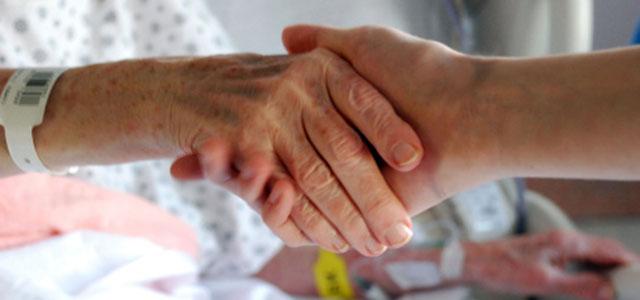
A Special Gift to Nursing Honors a UCSF Patient
The last months of his wife’s life remain an emotional blur. After years of better and worse news, hopeful signs and times for acceptance, Laurel Anderson died at home in 2004, at age 55, of acute myelogenous leukemia. Her husband, Dean, was at her side.
One thing stands out clearly from Dean Anderson’s memories of those final months: the nurses who cared for his wife at UCSF Medical Center. In their honor, Anderson is gifting the UC San Francisco School of Nursing $50,000 to help train nurses interested in working with blood cancer patients.
“We’d recognized from the beginning of her treatment that this was a group of people who were pretty amazing,” Anderson says. “They had the ability to come to work every day in a hospital area where a lot of people aren’t cured, and don’t make it, and to maintain a really positive attitude that was felt by all of us.”
A Courageous Soul Mate
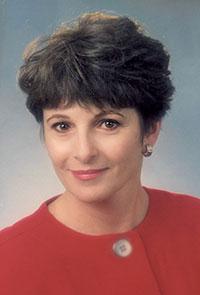 Laurel Anderson Dean and Laurel Anderson met in their home state of New Jersey and followed their shared dream of moving to California in the 1970s, settling in San Francisco. She was a real estate broker, and he is a retired human resources manager for the US Geological Survey. He describes her as “my best friend, my soul mate.”
Laurel Anderson Dean and Laurel Anderson met in their home state of New Jersey and followed their shared dream of moving to California in the 1970s, settling in San Francisco. She was a real estate broker, and he is a retired human resources manager for the US Geological Survey. He describes her as “my best friend, my soul mate.”
The leukemia diagnosis was a complete surprise. Laurel was an adventuresome, athletic, humble people-person, who faced her cancer with optimism and fighting strength, even when her body was weak, Dean Anderson says.
She remained strong and positive throughout 11 months of trying treatment, in some ways weathering bad news better than he did, he says. This included intermittent weeks of hospitalization. “Laurel spent a good part of her life after the diagnosis being in the hospital or going to doctor’s appointments,” he says.
Clinical and Emotional Support
Through it all, nurses were a backbone for the couple, Dean Anderson says. While the physicians were excellent, they came and went: doing procedures, explaining test results, laying out options. Nurses were round the clock, administering the most personal of care; stepping forward whenever necessary, stepping back when the couple needed time alone.
“When Laurel was at UCSF, she really got terrific care; we talked about it often – about how the nurses were so competent in what they did, but also so very caring,” says Dean Anderson, who practically lived at the hospital when his wife was there, barely leaving her side.
In addition to his donation to the School of Nursing, Anderson is giving $50,000 to the School of Medicine for blood cancer technician training. The amounts may grow over time, he says.
He’s donated to UCSF in the past, but this is his first formal gift. He feels fortunate to help the School of Nursing recruit and train nurses drawn to work with blood cancer patients, which he strongly believes takes a unique kind of person: part medical expert and part caring expert, with a natural compassion for helping dying patients, as well as their loved ones.
“Nursing schools have to be very selective of who they choose or encourage to go into this specialty. It takes more than wanting to be a good nurse; you have to have an emotional strength,” he says.

